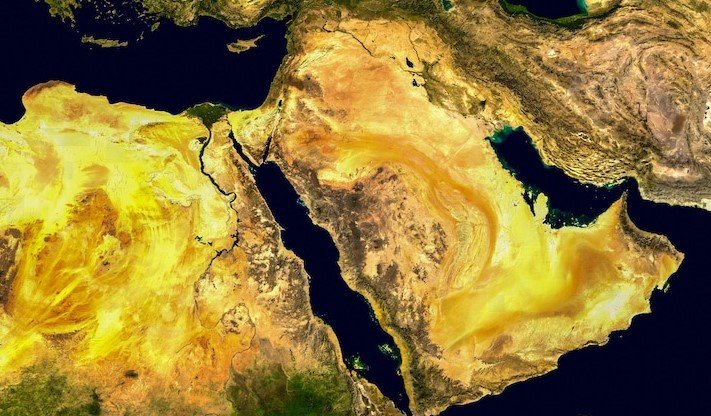Israel launched a bold airstrike in Qatar’s capital, Doha, on September 9, 2025, targeting top Hamas leaders amid ongoing Gaza ceasefire talks. This move has sparked global outrage and raised fresh fears of wider instability in the Middle East, as Gulf nations grapple with threats to their security and diplomatic roles.
Details of the Doha Attack
Reports confirm that Israeli forces carried out the strike in Doha, hitting locations linked to Hamas officials. The attack caused multiple explosions across the city, killing at least six people and injuring others.
Witnesses described thick smoke rising from central areas, with emergency services rushing to the scene. Officials say the targets included senior figures like Khalil al-Hayya, though some Hamas leaders survived the assault.
This operation marks a rare escalation, as Israel expanded its actions into a key Gulf state known for mediating peace efforts. The strike happened just as Hamas weighed a U.S.-backed ceasefire proposal for Gaza.
Analysts point out that Israel justified the move by claiming it aimed to disrupt Hamas operations. However, the attack has drawn sharp criticism for violating Qatar’s sovereignty.
Global and Regional Reactions
World leaders quickly condemned the strike, calling it a dangerous overreach. The United States expressed concern, urging restraint to protect ongoing negotiations.

Qatar vowed a collective response with other Gulf states, highlighting the need for unity against such threats. Neighboring countries like Saudi Arabia and the UAE voiced support for Qatar, warning of potential fallout.
In Yemen, Israel followed up with strikes on Sanaa the next day, targeting Houthi positions. This chain of events has fueled worries about a broader conflict spilling into the Gulf.
Public sentiment on social media reflects anger and fear. Many users in the region see this as a sign of Israel’s unchecked aggression, potentially destabilizing oil-rich economies.
- Key reactions from major players:
- United Nations: Called for an immediate investigation into the strikes.
- European Union: Expressed alarm over risks to civilian lives and peace talks.
- Iran: Denounced the attack as part of a pattern of Israeli expansionism.
Impact on Gulf States Security
Gulf nations have enjoyed relative stability thanks to strong U.S. ties and economic power. Yet, this incident exposes vulnerabilities in their defenses.
Qatar hosts a major U.S. air base, which some say Israel used for refueling during the operation. This has led to questions about alliances and how far partners will go to protect shared interests.
Saudi Arabia and the UAE, already dealing with Houthi threats from Yemen, now face heightened risks. Oil prices jumped after the strikes, signaling market fears of disrupted exports.
Experts warn that such attacks could undo years of diplomatic progress. Gulf leaders have invested billions in regional influence, but events like this highlight the limits of their control.
The loss of Iranian influence in Syria and Lebanon had buoyed Gulf hopes. However, ongoing violence in those areas, including recent clashes in southern Syria, adds to the uncertainty.
Broader Middle East Implications
The Doha strike threatens to halt Gaza ceasefire efforts, where Qatar played a central role. Talks stalled as Hamas regrouped, and Israel pressed its military advantage.
In Syria, the post-Assad government struggles with rebuilding amid Israeli incursions. Gulf states have poured aid into Syria to stabilize it and manage refugee flows.
This event ties into a pattern of tensions, including Israel’s actions against Hezbollah in Lebanon and Houthis in Yemen. The region remains a powder keg, with ethnic and sectarian divides fueling potential conflicts.
A table below outlines recent Israeli strikes in the Middle East:
| Date | Location | Target | Casualties |
|---|---|---|---|
| Sep 9, 2025 | Doha, Qatar | Hamas leaders | 6 killed |
| Sep 10, 2025 | Sanaa, Yemen | Houthi positions | Unknown |
| Aug 2025 | Beirut, Lebanon | Hezbollah sites | 20+ killed |
| Jul 2025 | Gaza Strip | Militant groups | Hundreds |
These actions show Israel’s strategy to weaken opponents, but they risk pulling in more actors.
Gulf states must now balance their ambitions with these dangers. Their wealth and influence grow, yet external forces continue to disrupt plans.
Challenges Ahead for Gulf Leaders
Looking forward, Gulf countries face four main uncertainties: managing Syria’s fragile peace, navigating regional politics, countering military threats, and maintaining economic stability.
They have lobbied successfully to lift U.S. sanctions on Syria, aiding reconstruction. Still, internal strife there could spark new refugee crises.
In broader politics, investments in Egypt and other nations aim to build alliances. But incidents like the Doha attack strain these ties.
Military challenges include upgrading defenses against airstrikes and drones. Economic stability hinges on secure oil routes, now under threat.
Leaders like those in Qatar seek to continue mediation roles, but trust has eroded. The path ahead requires careful diplomacy to avoid escalation.
Share your thoughts on how this strike might change Middle East dynamics. Comment below or spread the word to keep the conversation going.
